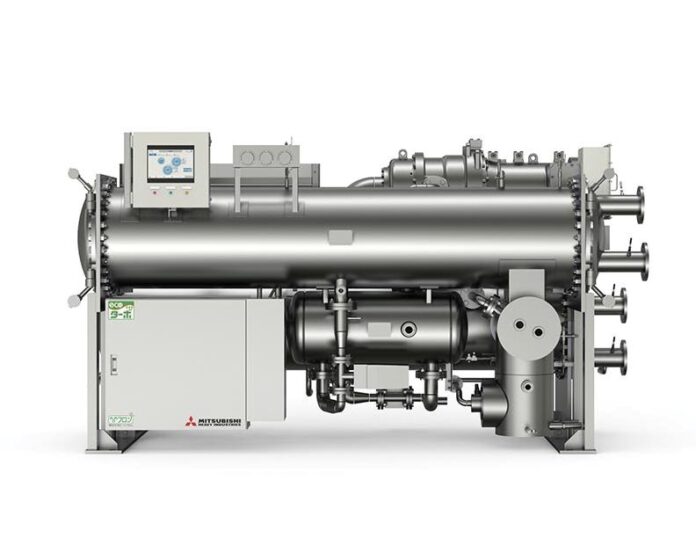
Mitsubishi Heavy Industries Thermal Systems, Ltd. has announced the newly developed the ETI-W, a centrifugal heat pump effectively using waste heat, for Japanese market.
This announced ETI-W effectively utilizes the heat emitted at factory production processes as a heat source water, achieving a maximum hot water supply temperature of 900C and a large capacity of up to 640 kW. This enables its use in high-temperature applications that were traditionally handled by conventional boilers. The “ETI-W” is expected to be utilized in a wide range of applications, including processes in electronics, automotive, food, chemical, and pharmaceutical factories, as well as heating and hot water supply in commercial facilities and accommodations.
ETI-W has high energy-saving with COP of 4.01 when this supplies hot water temperature of 900C. The compressor features centrifugal compressors with a proven track record in centrifugal chillers, optimally designed for refrigerant characteristics
and high compression ratios. It is also capable of handling a large capacity suitable for industrial applications, equivalent to a 1-ton boiler with a maximum capacity of 640 kW. Despite this capacity, it achieves high performance and a compact size by incorporating an inverter starter panel within the main unit and utilizing a shell-and-tube heat exchanger, similar to our ETI-Z series centrifugal chillers. Environmentally, it features a model that uses the low-environmental-impact, non-fluorocarbon refrigerant “HFO-1233zd(E),” which has a global warming potential (GWP) of 1 and does not deplete the ozone layer, thus achieving both high efficiency and environmental performance.
With the launch of this product, the lineup of industrial and commercial heat pump utilities, which includes heat recovery heat pumps and commercial heat pumps, will be further expanded across a wide range of hot water supply coverages and capacities, contributing to energy savings for the customers.








